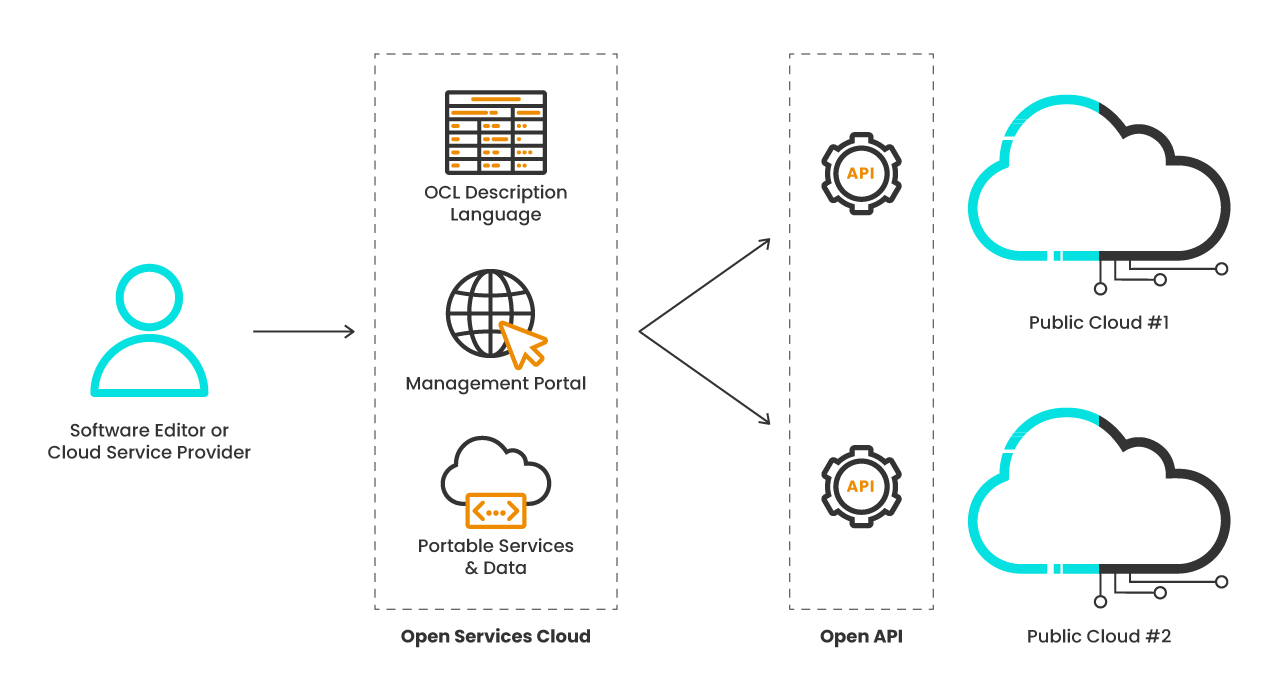Cloud services represent a key market for the competitiveness and digital sovereignty of the European Union. Accounting for more than 200 B€ in 2022, European cloud services have a potential for further annual growth of 14% over the next decade. But only if we tackle the existing challenges – if we overcome the three major issues: customer lock-in, vendor lock-out, and unbalanced competition.
To solve this problem, Open Services Cloud (OSC) proposes a technical framework that will enable full cloud interoperability and remove the barriers for cloud users in the EU.
OSC creates a level playing field between cloud service consumers and providers, ensuring the freedom to exchange information without artificial borders.
UNLOCK the Cloud: interoperability in detail
To support the dynamic developments in the European markets and meet the clear request for cross-cloud technologies, OSC makes it easier for consumers to simultaneously use multiple cloud services via three key innovations:

- The Open Services Cloud Configuration Language (OCL), a descriptive configuration language, syncs services and workload across multiple clouds via a standardised code structure. Adopting the OCL would make it easier for users to simultaneously use multiple clouds.
- A central management portal that ensures consistency across multiple clouds. This portal would enable users to store, manage, and process data using a single console for various data services, directly tackling the issue of cloud lock-in.
- A portable services and data solution that allows users to consume and control deeper cloud layers such as identity and access management, billing, and observability.
The Open Services Cloud platform synergises with the European Data Act and Digital Markets Act, leading to a market governed under the European standards for open interoperability and portability specifications.
UNLEASH the benefits and open new markets
As the Open Services Cloud platform enables European users to adopt complex cloud strategies, it further stimulates innovation and supports the emergence of new markets.
The OSC increases market competitiveness, reduces complexity and risk for developers, optimises integration costs for users, and enables cloud portability for all. The platform will standardise cloud integration, empowering users to migrate between cloud providers and adapt to changing costs and regulations.
Find out more in our next article and learn about the results of the Open Services Cloud study concerning the estimated market benefits and how the OSC can foster innovation in Europe.
Ready to boost digital sovereignty in the EU and support the emergence of new markets? Join the Open Services Cloud event on Tuesday, April 25, to make cloud services better for all — for customers, service providers, and everyday users alike.
It’s time to UNLOCK the Cloud!

